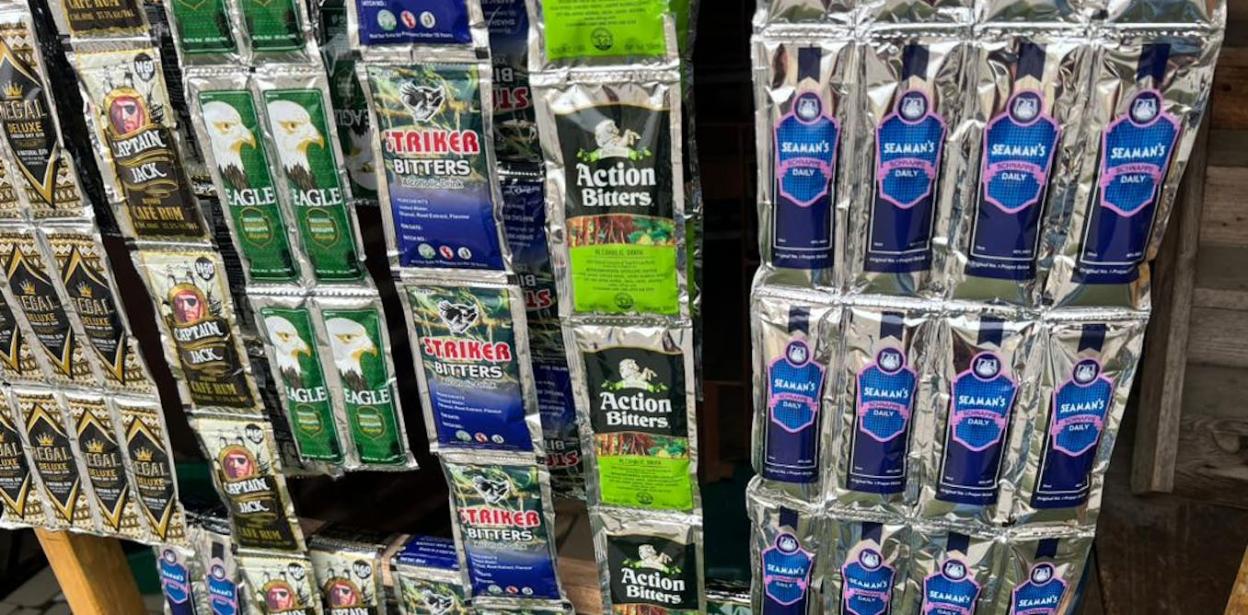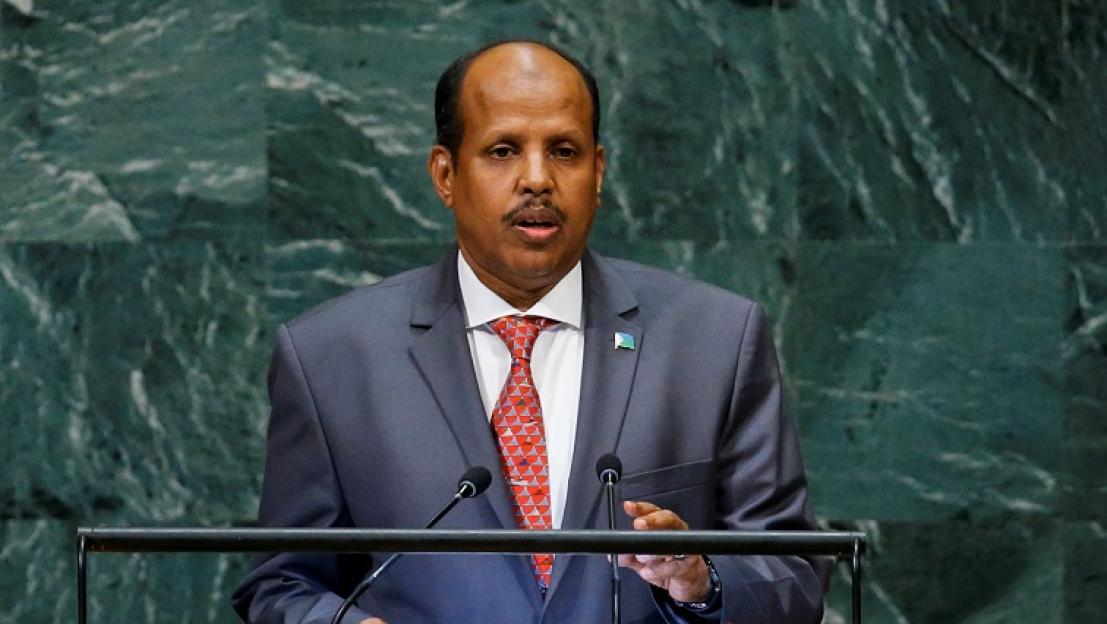Table of Contents
Since the proposal to ban alcoholic beverages in sachets and small bottles in Nigeria was first introduced, some Nigerians have expressed discomfort with the idea.
The proposal was initially raised in 2018, but due to significant public backlash at that time, the Federal Ministry of Health, the Federal Competition and Consumer Protection Commission (FCCPC), the National Agency for Food and Drug Administration and Control (NAFDAC), and organizations like the Association of Food, Beverages and Tobacco Employers (AFBTE) collaborated to sign a five-year memorandum of understanding (MoU) to gradually phase out alcoholic drinks in sachets and small bottles.
Since then, the government has postponed the implementation of this policy several times.
However, recent developments have sparked ongoing reactions to the proposal.
Initially, it was claimed that manufacturers of these products engaged in significant lobbying efforts to prevent the idea from being realized, but the proposal has persisted.
What manufacturers have managed to achieve is merely delaying the full implementation of the policy.
Last week, specifically on Tuesday, November 5, the Senate instructed NAFDAC not to extend the December 31 deadline for the production of alcohol in sachets and small bottles.
This resolution followed a motion of urgent national importance sponsored by Senator Asuquo Ekpenyong, who represents Cross River South, during the plenary session last week.
In presenting the motion, Ekpenyong stated that the directive aligns with global regulatory standards and international best practices aimed at reducing alcohol-related harm among Nigerians.
He recalled that in 2018, the Federal Ministry of Health, the FCCPC, NAFDAC, and industry bodies, including the AFBTE, voluntarily signed a five-year MoU to gradually phase out sachet and small-bottle alcoholic beverages.
Ekpenyong explained that the Federal Government had previously granted a one-year moratorium in 2024 at the request of manufacturers, allowing them to deplete existing stock and transition to compliant packaging alternatives.
However, the lawmaker expressed concern that some manufacturers were lobbying for another extension, which he argued would undermine regulatory authority, jeopardize public health, and perpetuate the circulation of harmful alcoholic products in the market.
“As the December 2025 deadline approaches, certain manufacturers are lobbying for another extension, thereby undermining the regulatory process and endangering public health,” Ekpenyong said.
“We cannot continue to expose our youth to cheap, easily accessible alcohol that destroys lives and threatens public safety,” he asserted.
He warned that the ongoing availability of high-strength alcoholic beverages in sachets has contributed to addiction, impaired cognitive development, school dropouts, domestic violence, and increased road accidents, particularly among commercial drivers and young people.
Ekpenyong further noted that manufacturers who have complied in good faith are now at a disadvantage compared to those who continue to produce non-compliant products, creating an uneven market.
After extensive deliberation, lawmakers who contributed to the motion praised Ekpenyong for raising the issue, emphasizing the need for stricter enforcement and public awareness.
Senator Anthony Ani, representing Ebonyi South, supported the call, referring to the easy availability of cheap alcohol as a growing social menace.
“The easy availability of cheap alcohol is fueling social vices. We must act now to protect our younger generation from self-destruction,” he stated.
In his ruling, Senate President Godswill Akpabio described the resolution as a timely measure to safeguard public health and the welfare of youth.
He urged NAFDAC to ensure full enforcement of the ban by December 2025, cautioning that any further extension would undermine Nigeria’s efforts to combat substance abuse.
“This is a matter of urgency,” Akpabio said. “The agency must take decisive action to protect Nigerians, especially our youth, from the dangers of unregulated alcohol consumption.”
Following the Senate resolution and the subsequent directive to NAFDAC, the agency on Tuesday, November 11, reaffirmed its commitment to begin enforcing the ban on the production and sale of alcoholic beverages in sachets and small-volume bottles next month.
This information was shared in a statement by the Director-General of NAFDAC, Prof. Mojisola Adeyeye, in Abuja recently.
She stated that this decisive action was ordered by the Nigerian Senate and supported by the Federal Ministry of Health and Social Welfare, highlighting the agency’s statutory mandate to protect public health and vulnerable populations, particularly children, adolescents, and young adults from the harmful use of alcohol.
She added that the proliferation of high-alcohol-content beverages in sachets and small containers has made these products easily accessible, affordable, and concealable, leading to widespread misuse and addiction among minors and commercial drivers.
“This is a public health crisis, linked to increased instances of domestic violence, road accidents, school dropouts, and social vices across communities,” she noted.
“This ban is not punitive but protective. It aims to safeguard the health and future of our children and youth.”
“The decision is based on scientific evidence and public health considerations. We cannot continue to sacrifice the well-being of Nigerians for short-term economic gain. The health of a nation is its true wealth,” she stated.
She reiterated that only two categories of alcoholic beverages are affected by this regulation: spirit drinks packaged in sachets and small-volume pet/glass bottles below 200ml.
She called on all stakeholders, including manufacturers, distributors, and retailers, to fully comply with the phase-out deadline, as no further extensions will be granted beyond December 2025.
DAILY POST recalls that in December 2018, NAFDAC, the Federal Ministry of Health, and the FCCPC signed a five-year Memorandum of Understanding (MoU) with the AFBTE and the Distillers and Blenders Association of Nigeria (DIBAN) to phase out sachet and small-volume alcohol packaging by January 31, 2024.
The moratorium was later extended to December 2025 to allow industry operators to deplete old stock and reconfigure production lines.
NAFDAC, however, emphasized that the current Senate resolution aligns with the spirit and letter of that agreement and with Nigeria’s commitment to the World Health Organization’s Global Strategy to







